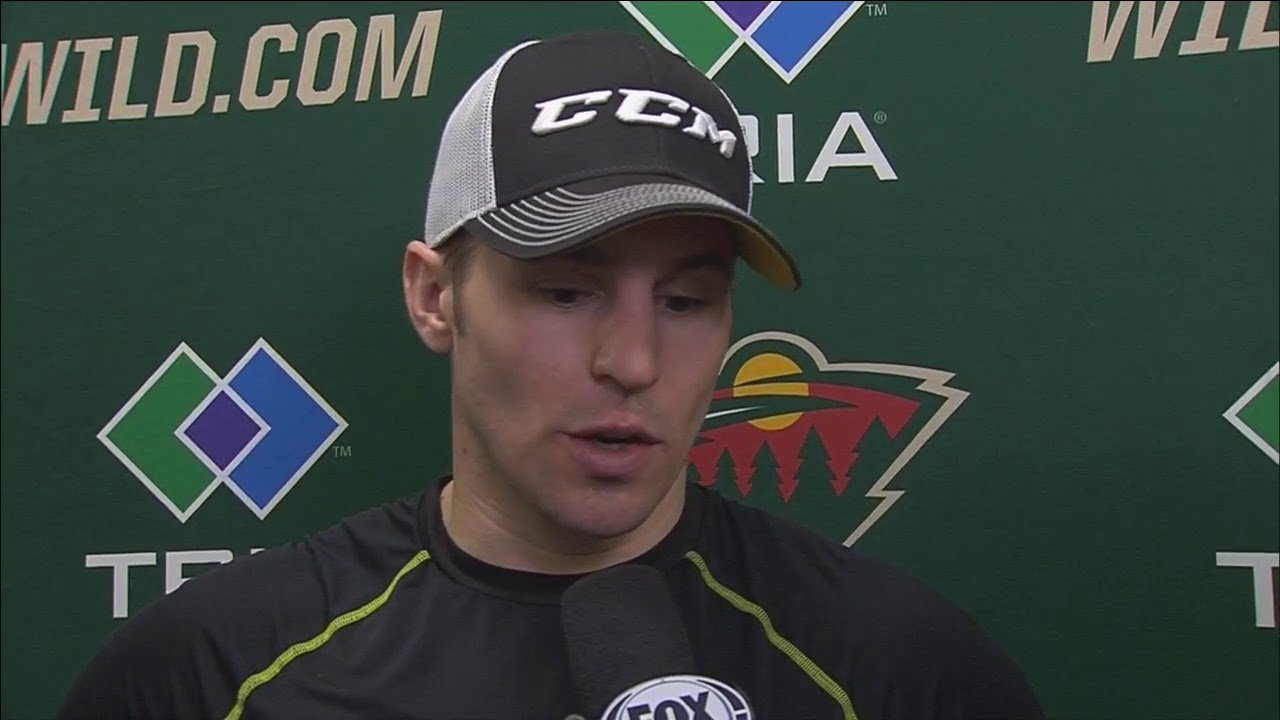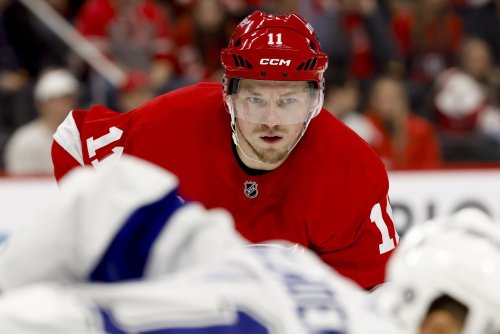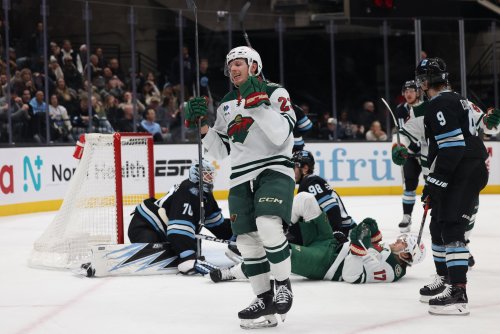
Hey guys, we're back here for another roundtable discussion. I'm Brandon Warne, and I'll moderate the discussion between our Minnesota Wild experts. Let's dive right in!
Brandon Warne: If the playoffs started today, the Wild would be on the outside looking in. What’s the No. 1 reason for this?
Giles Ferrell: Bottom-six scoring. Minnesota sacrificed some big contributors of the bottom six -- Erik Haula, Alex Tuch, Jordan Schroeder -- this past summer at the expense of Marcus Foligno and Tyler Ennis. Ennis was supposed to provide some scoring with the whole ‘fresh start’ narrative, but he has yet to do so. Minnesota has heavily relied on its top six to score this season, and when they can not, the team suffers mightily.
Heather Rule: Inconsistent play. Their longest winning streak this season is a modest four games (twice), but then each time they followed that up with a pair of losses. Especially early on, they hovered around the .500 mark for a while. They just haven't really gone on a solid run this year, which makes jumping up in the standings difficult. And they haven't even had a swoon (yet) this season. More specifically as part of this, point the finger at the third periods. Coming into the game against Columbus, the Wild had given up 65 third-period goals, compared to 35 each in the first and second periods.
Ben Remington: Giles and Heather are both right, but goaltending has been an issue as well. Last season Devan Dubnyk played at a Vezina-caliber level for most of the season. This season he’s been inconsistent, and decent overall, but not as good as he was last season. Having Dubnyk save their bacon during the early-season struggles of players learning Bruce Boudreau’s system was an underrated part of the team’s success last season. They're missing that level of performance, in addition to their health woes. Dubnyk’s .917 SV% is very middle of the pack compared to his otherworldly .936 at this point last season.
Brandon: We’re three weeks from the trade deadline. What’s the No. 1 need that the Wild can feasibly and reasonably address between now and then? Should the Wild push as many chips in as they can for one more run, or is the team not structured for that?
Giles: As noted on Zone Coverage a week and a half ago, there are too many holes in the Wild lineup for them to be buyers. Not all can be fixed, and the margin for error in the West is so thin it is not worth it for them to buy in again. However, the dynamic for what will actually happen is so different, because GM Chuck Fletcher is in the final year of his contract. In other words, he could make one last desperation move.
Heather: They’ve always -- since Marian Gaborik -- needed a pure goal scorer. Good luck with that. Fletcher has been known for making these splashy trades around the deadline, often to help salvage a season after a swoon. There was even the dialogue that players expected to be bailed out with a trade. They still have the same problem with cap space, big contracts and no-moves, making it difficult to do much. With them being in the middle of the pack, trying to find a spot in the playoffs, it’s hard to warrant a big move either. I’d say if they could find a decent package for moving Coyle or Niederreiter, go for it. Otherwise, it might be best not to force anything. Or like Giles pointed out, Fletcher could go for one more desperation trade to round out his Wild tenure.
Ben: To be honest they can’t really address much, and to Giles’ point, Fletcher’s job status leaves things up in the air even more. The only thing that could really shake this team up at this point would be a blockbuster-type trade, and taking a chance that it somehow ignites this team and gives them just what they need going forward. We’re talking a Granlund, Nino or Coyle-type move, since the bigger contracts really can’t be moved.
I think Fletcher would rather go down with the guys that he has than to do something like that, so he’s probably more likely to stand pat. I don’t know what they could even do to push more chips in, given the state of their salary cap, so that’s really going to hamper any kind of splashy move that they even could pull off.
Brandon: Few teams have as many wins (17) as the Wild have at home this year. Contrarily, they’re #not #good on the road. Is this a thing?
Giles: It’s really a thing for most NHL teams, and perhaps Wild fans were spoiled by the road play last season. But for whatever reason, the Wild goaltending falls completely off on the road as their save percentage away from St. Paul hovers right around .900. If Wild goaltending can get better on the road, the road wins will start to follow.
Heather: The Wild turn things into things when they shouldn't be things. That makes total sense, I know. They're known for making opposing backup goaltenders look like All-Stars. They'll get smoked by teams who are on the second night of a back-to-back when the Wild have rested at home for three days. Stuff like that. I think if anything this home-road record shows they're a mediocre team. Good teams find ways to win both at home and on the road. It's an oddity that they're so much better at home, but I just don't think it's a huge concern. The game shouldn't drastically change from one arena to another. If it does, then to me it shows the team has some work to do. On the other hand, maybe there's something to be said for sleeping in their own beds with a mug of hot cocoa on the nightstand every night.
Ben: I think it shows a weakness in the depth. The only actual home-ice advantage in hockey is getting last change, which allows coaches to play matchups. Last season, the Wild were good on the road because they had some of the best depth in the NHL, so regardless of the matchup, they had a line that could succeed. This season, because the bottom six has struggled so mightily and the injuries have racked up, not having an advantageous matchup on the road has killed them time and time again.
Brandon: The Wild are over .500 with a very slim goal differential (plus-5). Two questions -- Does this say more about Devan Dubnyk and Alex Stalock? Secondly -- where are all the goals? No team in the Central has fewer.
Giles: As noted in the question above, road goaltending needs to improve all around. If the saves on the road come, the wins should follow.
Second question: it stinks the Wild have no cap room because the point producers in Iowa -- Sam Anas, Zack Mitchell, Justin Kloos -- can’t get a call-up to Minnesota. Meanwhile, we get to watch grinders Marcus Foligno and Chris Stewart try to score nightly. Woof.
Heather: Dubnyk. He gets the net the majority of the time. When Stalock has played, he’s put up some solid efforts and had to clean up a couple messes sometimes, too. Where are the goals? Well, defensemen are scoring them, for one thing. That's not necessarily a bad thing, but it's a little concerning when you start to compare some of the names.
Captain Mikko Koivu has just six goals this season, and so do defensemen Jared Spurgeon and Ryan Suter. Charlie Coyle finally scored just his fifth goal of the season right after the All-Star Break. Defenseman Matt Dumba ranks fifth on the team with his nine goals. Veteran forward Chris Stewart, known more for his physical presence than his goal scoring, has eight goals. Zach Parise missed a significant chunk of the season, so he only has a couple tallies this season - as many as Nate Prosser. Basically, they’re not getting the goal production from where you’d expect this year.
Ben: I think both points are extremely valid. The goaltending combined is mediocre, with both Dubnyk and Stalock almost exactly at league average metrics, and the scoring has struggled. I wrote an article a few weeks back about how the Wild’s bottom six hasn’t produced at nearly the same rate as it did last season, despite having much, much more opportunity to do so with all of the top-six injuries. And in the end, the PominTrade’s biggest sin may not have been losing Pominville, a solid bottom-six guy, but bringing in -- and subsequently signing -- Foligno, a boat anchor on skates.
Never Miss an Episode of Giles & The Goalie!
Think you could write a story like this? Hockey Wilderness wants you to develop your voice, find an audience, and we'll pay you to do it. Just fill out this form.









Recommended Comments
There are no comments to display.
Join the conversation
You can post now and register later. If you have an account, sign in now to post with your account.
Note: Your post will require moderator approval before it will be visible.